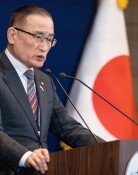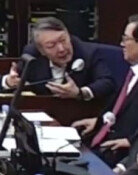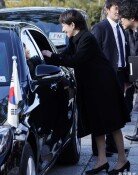Hillary Clinton: Korea-U.S. Relationship in State of Historical Oblivion
Hillary Clinton: Korea-U.S. Relationship in State of Historical Oblivion
Posted October. 27, 2005 04:22,
U.S. Senator Hillary Clinton, an emerging candidate for the U.S. presidential election in 2008, expressed concern about the change in Koreas view on the Korea-U.S. relationship by mentioning Koreans unawareness of history at the confirmation hearing on Burwell B. Bell, a nominee for the United States Armed Forces commander in Korea position, conducted by the Senate Armed Services Committee on October 25.
Senator Clinton said, The U.S. played a big role in Koreas impressive economic success by providing economic assistance and national security, and pointed out that despite the help from the U.S., the current relationship between the two countries lacks too much mutual understanding, resulting in it being buried in the oblivion of history.
Clinton added, The relationship has shifted because Koreans are not fully aware of the importance of the U.S. decades-long effort while enjoying economic growth and wider freedom.
Clinton noted that the relationship between Koreans and Americans is facing a critical moment and concluded her speech, saying, The people of the two countries should know how important the Korea-U.S. relationship is. Bell didnt show any particular response.
Although Clinton criticized the Bush administrations North Korean policy in a joint letter to U.S. Secretary of State Condoleezza Rice with other Democratic lawmakers in April, it is very unusual to see Clinton virtually criticizing the Korean attitude regarding the Korea-U.S. relationship.
Regarding Clintons comments, some analyze that the so-called Fatigue Syndrome of the Korea-U.S. relationship is spreading to the center of the Democratic Party. So far, it was Republican conservatives who have expressed concerns about the crack in the Korea-U.S. relationship.
Meanwhile, Bell stated at the hearing, North Koreas development of ballistic missiles is posing a major threat on the U.S. allies, including Korea, as well as the U.S. Bell added that it is clear that the North doesnt consider unilaterally giving up its development of missiles.
Seung-Ryun Kim srkim@donga.com







